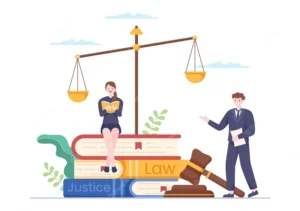Child Custody Laws and Guidelines in the USA

Child custody matters are often one of the most emotionally charged aspects of family law. Understanding child custody laws and guidelines in the USA is essential for parents navigating divorce or separation. This article explores the basics of child custody, the types of custody arrangements, and the factors that influence custody decisions.
Contents
The Basics of Child Custody
Child custody refers to the legal and practical relationship between a parent and a child. It involves the rights and responsibilities of parents regarding their child’s upbringing and welfare. Custody determinations are typically made during divorce proceedings, but they can also arise in cases of separation or when unmarried parents part ways.
1. Legal Custody vs. Physical Custody
Child custody can be broken down into two primary categories:
- Legal Custody: This pertains to a parent’s authority to make important decisions on behalf of the child, such as those related to education, healthcare, religion, and general well-being. Legal custody can be joint (shared by both parents) or sole (granted to one parent).
- Physical Custody: Physical custody refers to where the child resides and the day-to-day care they receive. It can also be joint or sole, depending on the custody arrangement.
Types of Custody Arrangements
In the United States, various custody arrangements are possible, depending on the circumstances and the best interests of the child:
1. Joint Custody
- Joint Legal Custody: Both parents share decision-making responsibilities for the child.
- Joint Physical Custody: The child spends significant time living with both parents, often on a schedule determined by the court.
2. Sole Custody
- Sole Legal Custody: One parent has the exclusive right to make major decisions for the child.
- Sole Physical Custody: The child primarily resides with one parent, and the other parent may have visitation rights.
3. Split Custody
Split custody is less common and typically occurs when there are multiple children involved. In this arrangement, each parent has sole physical custody of one or more children.
4. Third-Party or Grandparent Custody
In certain situations, a child’s grandparents or a third party may seek custody if it is in the child’s best interests. This is typically considered when both parents are deemed unfit or unable to provide suitable care.
Factors Influencing Custody Decisions
Child custody decisions are not arbitrary but are based on a set of factors that prioritize the child’s well-being. These factors may include:
- The child’s age, physical and emotional health, and specific needs
- Each parent’s ability to provide a stable and nurturing environment
- The child’s relationship with each parent and any history of abuse or neglect
- Each parent’s willingness and ability to cooperate and support the child’s relationship with the other parent
- The child’s school, community, and social connections
- The child’s own preferences, if they are of sufficient age and maturity to express them
It’s important to note that every state in the USA has its own child custody laws and guidelines, which can lead to variations in how these factors are considered and weighed in custody determinations. Consulting with an experienced family law attorney in your state is crucial to understanding the specific laws that apply to your situation.
Modifying Child Custody Arrangements
Child custody orders are not necessarily permanent. They can be modified when circumstances change significantly. Common reasons for seeking custody modifications include changes in a parent’s living situation, employment, or health, as well as changes in the child’s needs or preferences.
Conclusion
Child custody laws and guidelines in the USA aim to ensure that custody decisions are made in the best interests of the child. Understanding the different types of custody arrangements, the factors that influence custody decisions, and the potential for custody modifications is vital for parents navigating the complexities of child custody matters. Consulting with a knowledgeable family law attorney can provide invaluable guidance in these sensitive and often challenging situations.









